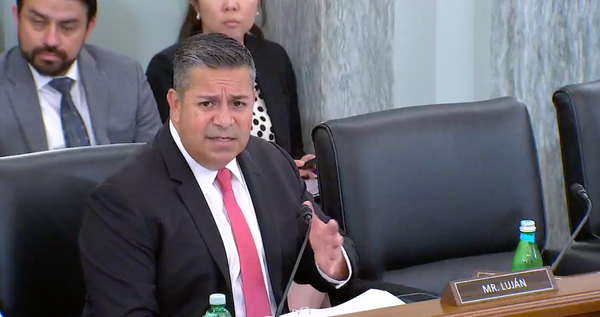Altice USA To Surrender RDOF Awards In Three More States
The third-largest cable ISP in the country told the FCC Friday it intends to surrender awards in Kentucky, Arkansas and West Virginia.

WASHINGTON, April 20, 2024 – Altice USA, the third-largest cable ISP in the country, informed federal regulators on Friday that it intends to surrender broadband subsidy grants in three states, saying its decision would allow affected locations to become eligible for funding in other broadband support programs.
Altice told the Federal Communications Commission that it was giving up locations won in the Rural Digital Opportunity Fund reverse auction in 2020. The company listed 22 census block groups (CBGs) in all, including 12 in Kentucky, nine in Arkansas, and one in West Virginia.
“By relinquishing these CBGs now … Altice helps ensure that unserved and underserved locations in these areas are eligible to receive federal funding through programs like NTIA’s Broadband Equity Access and Deployment Program,” said Cristina Chou, Altice’s Vice President of Federal Affairs, in an April 19 letter to Trent Harkrader, Chief of the FCC’s Wireline Competition Bureau.
BEAD is a $42.45 billion broadband subsidy program run by the Commerce Department’s National Telecommunications and Information Administration. It is the Biden Administration’s signature program to deliver high-speed Internet to all Americans.
Based in Long Island City, N.Y., Altice serves about 4.5 million broadband subscribers in 21 states, according to Leichtman Research Group.
Altice already relinquished RDOF awards in Louisiana
As previously reported by Broadband Breakfast, Altice in March relinquished RDOF awards in 18 CBGs in Louisiana, bringing to four the number states in which the company has decided to give up broadband deployment subsidy projects.
On April 15, the FCC’s Wireline Competition Bureau issued a public notice finding that Altice had “defaulted on [its] RDOF service milestones in Louisiana,” exposing the company to penalties such as support recovery and other non-compliance measures.
As also previously reported by Broadband Breakfast, FCC penalties meted out by the Universal Service Administrative Co. are based on a percentage of deployment achieved by the support recipient. For ISPs with less than 90 percent deployment, the penalties can include up to 1.75 times the average support per location received, in addition to 10% of the total support authorized to the ISP. These penalties escalate based on the degree of deployment shortfall.
Altice did not provide the total number of locations it was surrendering in the three news states. In Louisiana, the company was to receive about $304,000 in support over 10 years to offer voice and broadband service to 2,266 locations, according to the FCC.

The FCC said Altice “will receive no further RDOF auction support payments for Louisiana.”
Altice indicated it was prepared for the same funding cutoff in Kentucky, Arkansas, and West Virginia.
“Altice understands that it will no longer be entitled to receive further RDOF support for the surrendered CBGs and that it may be subject to the applicable non-compliance rules,” Chou told the FCC, adding that it “retains its rights to seek relief from any penalties …”
Under RDOF, the FCC is planning to give out $9.2 billion in subsidy awards over 10 years.
Dozens of financially troubled RDOF winners have asked the FCC to establish a short-term amnesty program, which would allow them to pay a only a small financial penalty, if that, to surrender their awards. In a controversial proposal, some RDOF winners want to seek BEAD money to serve the RDOF locations that they surrendered in the amnesty.










